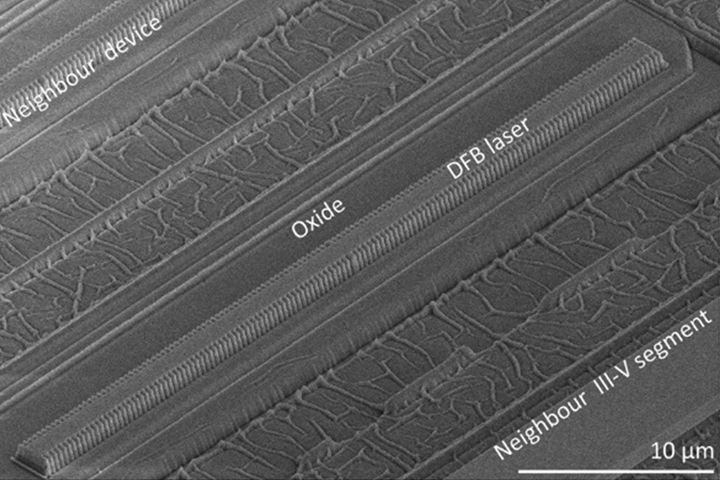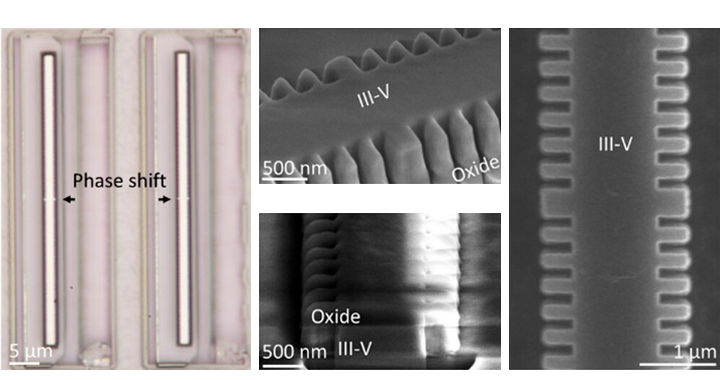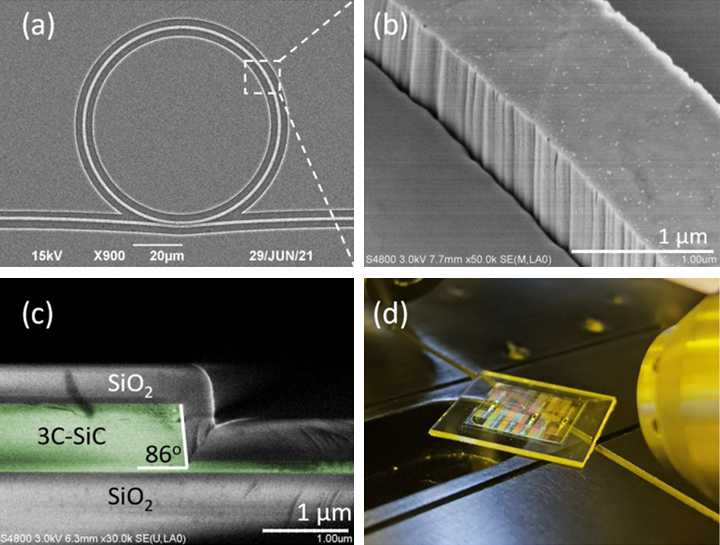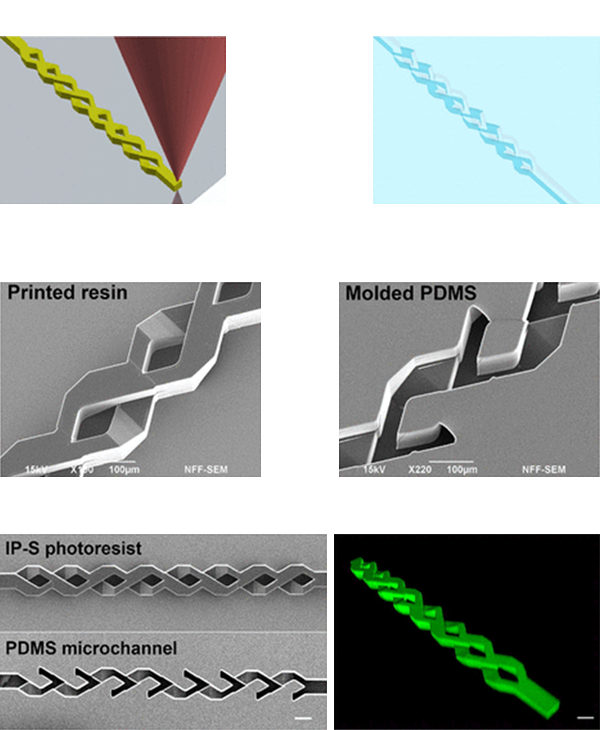Publication Highlights
NFF(CWB) user Ying XUE’s paper, titled “In-Plane 1.5 µm Distributed Feedback Lasers Selectively Grown on (001) SOI” was published in the Laser & Photonics Reviews in August 2023. Ying XUE is supervised by Prof. Kei May LAU.
In this study, efficient III-V distributed feedback (DFB) lasers selectively grown on (001) silicon-on-insulator (SOI) wafers are presented. The selective hetero-epitaxy of sufficiently large areas of III-V segments allows the demonstration of DFB lasers on the SOI wafer. The fabricated DFB lasers feature a co-planar configuration with the Si layer, allowing for efficient coupling between III-V lasers and Si waveguides. The unique III-V-on-insulator structure also provides strong optical confinement for the lasers. Gratings are designed and fabricated with minimal non-radiative recombination and a simple process with good tolerance. The results here demonstrate a step forward towards wafer-scale integration with monolithically grown lasers, thus outlining the prospect of fully integrated Si photonics. You can access the publication through this link.


NFF(CWB) user Jiayang LI’s paper, titled “A 3C-SiC-on-Insulator-Based Integrated Photonic Platform Using an Anodic Bonding Process with Glass Substrates” was published in the micromachines in February 2023. Jiayang LI is supervised by Prof. Andrew W. POON.
This work demonstrates a 3C-SiC-on-insulator (3C-SiCoI)-based integrated photonic platform by transferring the epitaxial 3C-SiC layer from a silicon die to a borosilicate glass substrate using anodic bonding. By fine-tuning the fabrication process, this work achieved nearly 100% area transferring die-to-wafer bonding. This work also fabricated waveguide-coupled microring resonators using sulfur hexafluoride (SF6)-based dry etching and demonstrated a moderate loaded quality (Q) factor of 1.4 × 105. The existence of the photorefractive effect was experimentally excluded in this platform at sub-milliwatt on-chip input optical power levels. This 3C-SiCoI platform is promising for applications, including large-scale integration of linear, nonlinear and quantum photonics. You can access the publication through this link.

NFF(CWB) user Zhenghao WANG’s paper titled “A Directly Moldable, Highly Compact, and Easy-for-Integration 3D Micromixer with Extraordinary Mixing Performance” was published in the Analytical Chemistry in June 2023. Zhenghao WANG is supervised by Prof. Hongkai WU.
This study reports a 3D PDMS micromixer based on the splitting–stretching–recombination (SSR) of streams to facilitate molecular diffusion, which can effectively and rapidly mix solutions with low Reynolds numbers (0.01–10). The fabrication of the micromixer is convenient with only two steps ─ two-photon polymerization (2PP) 3D printing and soft lithography, with high resolution, reproducibility, and ease for integration.
This study investigated the mixing performance of the micromixer by CFD simulations and experimental studies under a confocal microscope. The results confirmed its better performance and higher chip miniaturization than others. You can access the publication through this link.
